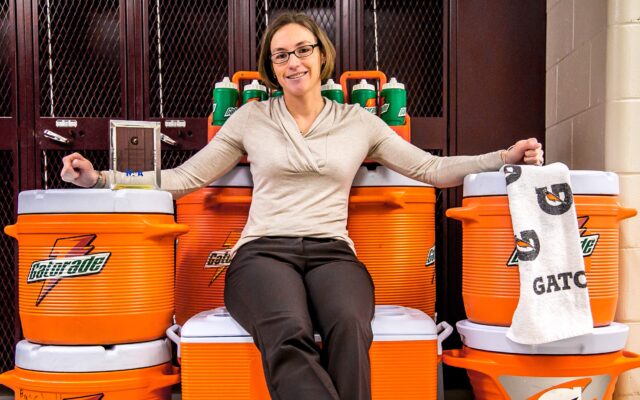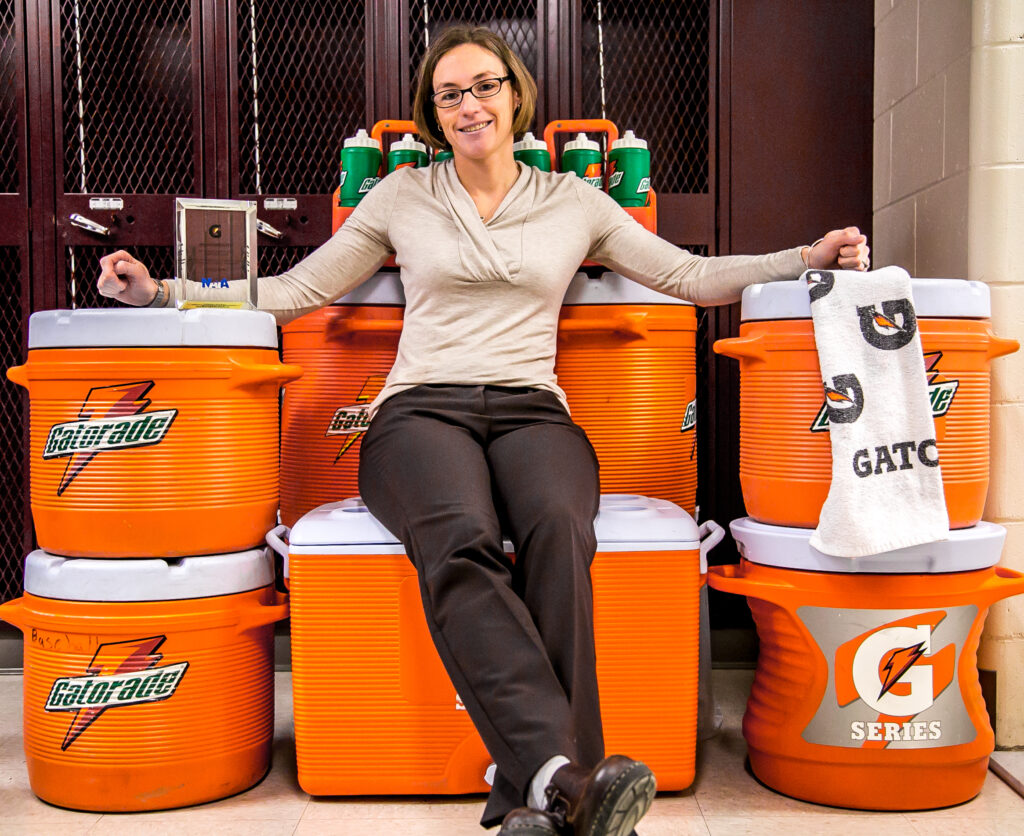
Many Maine high schools don’t have athletic trainers to intervene when players get hurt
By Larry Mahoney and Adam Robinson, Bangor Daily News Staff
During a boys basketball game at Calais High School, a player on the opposing team who had donated blood earlier in the day passed out on the court.
“He was turning blue,” recalled Randy Morrison, the former Calais athletic director.
Calais did not have an athletic trainer so officials called 911. Paramedics arrived and took the player to the hospital, where he quickly recovered.
“It was nerve-wracking,” Morrison said.
The anxiety surrounding potential student-athlete injuries is a normal occurrence in Maine, where the majority of high schools do not employ full-time athletic trainers. Athletic directors and coaches throughout the state said they are deeply concerned by the lack of athletic trainers, particularly after Buffalo Bills safety Damar Hamlin collapsed on the field and went into cardiac arrest during an NFL game against the Cincinnati Bengals on Jan. 2 at Paycor Stadium in Cincinnati.
Hamlin was revived and continues to improve in a Cincinnati hospital.
It’s an extreme case, but a situation athletic directors and coaches don’t want to be in without professional help.
“Catastrophic injuries are few and far between, thank goodness, but people need access to the proper care,” said Jaclyn Tourtelotte, Foxcroft Academy’s athletic director and athletic trainer.

TRAINERS ON SITE — Foxcroft Academy Athletic Director and Athletic Trainer Jaclyn Tourtelotte. The Maine Principals Association strongly recommends that schools have a trainer or someone with a medical background at games or events, but it isn’t required.
There are 450 certified athletic trainers in Maine, according to Luke Bartlett, a certified athletic trainer who works for Hampden Academy as well as Northern Light Sports Health. Of the 147 high schools in Maine, about 60 have full-time services, while 30 have part-time trainers or trainers who work per diem, while the rest have no athletic trainers at all, Bartlett said.
The reasons schools don’t have a full-time athletic trainer can vary. Some smaller schools can’t afford an athletic trainer in their budgets, while others have budgeted for a trainer but struggle to hire one.
The Maine Principals Association strongly recommends that schools have a trainer or someone with a medical background at games or events, but it isn’t required.
Cliff Urquhart, the athletic director and girls basketball coach at Southern Aroostook High School in Dyer Brook, said an athletic trainer’s job requires a lot of hours, especially nights and weekends when most games are held.
“If you are trying to raise a family, those are tough hours,” Urquhart said. “And what would we pay them? They could make a lot more money working for a hospital rather than a public school.”
At Dexter Regional High School, Athletic Director Roy Pelotte said the school has budgeted for an athletic trainer but can’t hire one. The Tigers have gone without a full-time trainer since the beginning of last school year.
Dexter, like many schools in northern Maine, uses Northern Light Health for athletic training services.
Bartlett said Northern Light Health services around 20 schools from the Pittsfield area to Lincoln, and their participation can vary. Some schools call Northern Light if there is an injury or have trainers just for game coverage, while some have trainers a couple days a week or even full-time trainers that are at the school five or six days a week.
Mount Desert Island High School has a full-time trainer in Dan Vibert, said the school’s athletic director, Bunky Dow. The school used to contract with a local hospital to provide coverage.
A member of the community, Scott Henggeler, approached Dow 12 years ago and asked him what he could do to help the athletic program. Henggeler supplied seed money for an athletic trainer and the position was built into the budget. After two years, the school had enough money to fund a full-time athletic trainer.
Dow called it “the best thing I’ve ever done.”
When schools can’t get an athletic trainer from Northern Light Health, athletic directors and coaches are in charge of helping student athletes.
“This past soccer season I had to call an ambulance when a student athlete on another team had a dislocated elbow,” Bangor Christian Athletic Director Jon McAllian said. “We had our trainer on call but there was no trainer on site for that.”
During football season, Pelotte can often schedule an ambulance to be at every Dexter home game on Saturday afternoons but sometimes an ambulance can’t make it or it comes later in the game.
Pelotte said his stress level goes up when Dexter can’t get an athletic trainer.
Morrison, who left Calais last year after 18 years, said the school has a full-time athletic trainer for the first time this season in wrestling coach Spencer McCormick. Morrison believes Calais is the only school in Washington County with a full-time athletic trainer.
If the worst-case scenario were to happen on the field or on a court, medical care has to be swift.
Dr. Carl Flynn, the head hockey coach at Presque Isle High School, worries the most about cervical spine injuries and arterial lacerations.
“If a player goes into cardiac arrest, once it gets to the eight-minute mark [without restarting the heart], you are going to have brain damage,” Flynn said. “If you have an arterial laceration, it would be very hard even for me to control if I didn’t have emergency room [equipment].”
Flynn said the first thing he does when he gets to a rink is locate the artificial external defibrillator, commonly referred to as an AED, for jump-starting the heart.
Bartlett of Northern Light Health said athletic trainers give much-needed procedural guidance for athletic directors and coaches in case of emergency.
“A lot of stuff that coaches don’t realize, or may not realize, is having an AED present and knowing where they can access ice and other supplies schools purchase,” Bartlett said. “We do a lot of education, we practice situations with our coaches, so if and when something happens, things happen in a timely manner and we’re not taking too long and that the athlete can get their help.”
Orono High School Athletic Director Michael Archer is relieved that the school’s student athletes have a full-time athletic trainer at the school and at all games.
“When you’re talking about any type of head injury or a kid at a football game that took a hit and they have a bad tingling feeling in the extremities, that’s not something that I want my coaches or myself to have to deal with,” Archer said. “Our coaches are trained in first aid and CPR, but that’s not what they’re there to do.”
Archer said Orono was the second school in Maine behind Bangor High School to hire an athletic trainer in the early 1980s.
He said there shouldn’t be any budget excuses for schools to fill the position.
“The days of, ‘We can’t afford it,’ doesn’t cut it anymore,” Archer said. “I’d much rather have something in the budget where, yup, it’ll create a strain a little bit, than have an athlete hurt and we handle it wrong and end up in a lawsuit.”